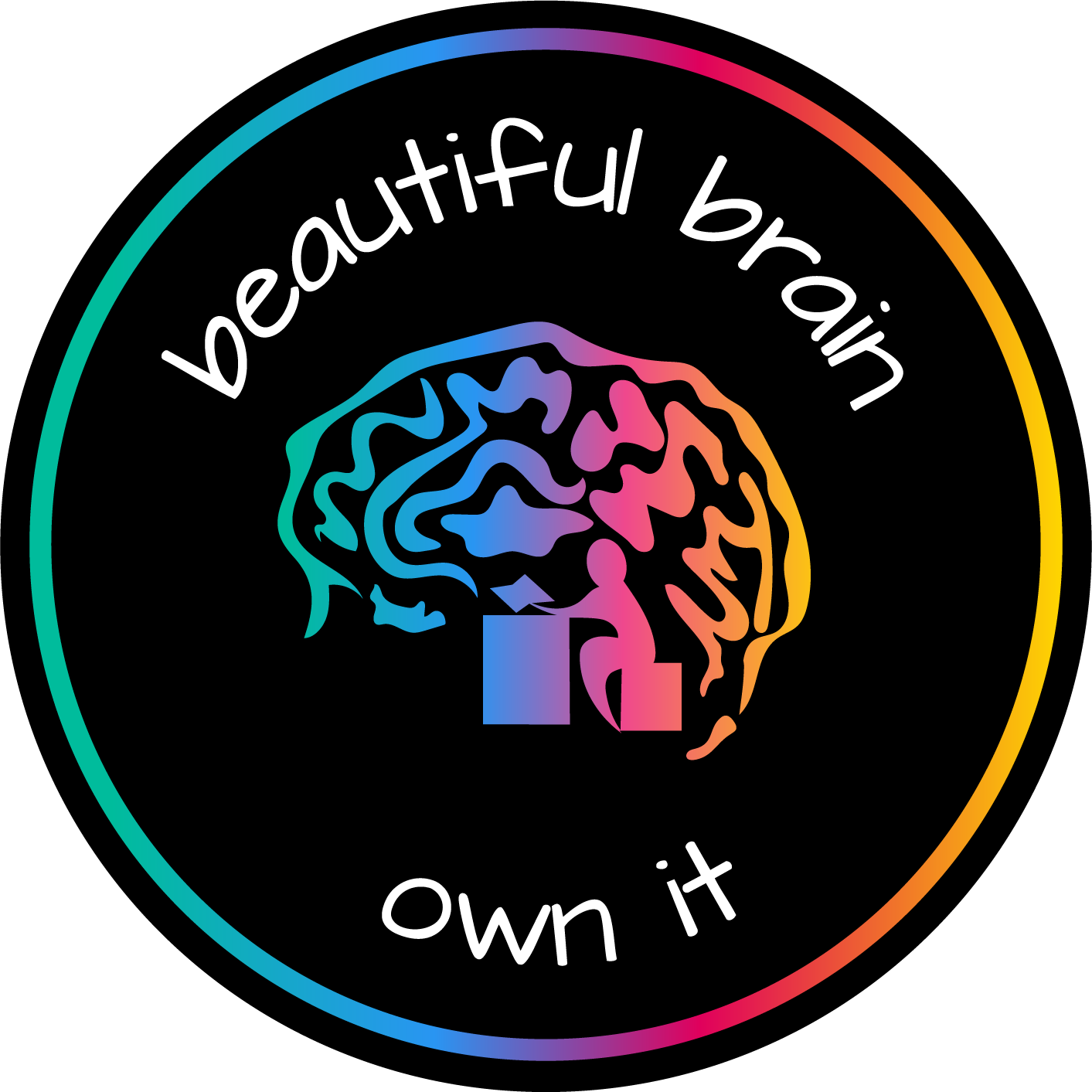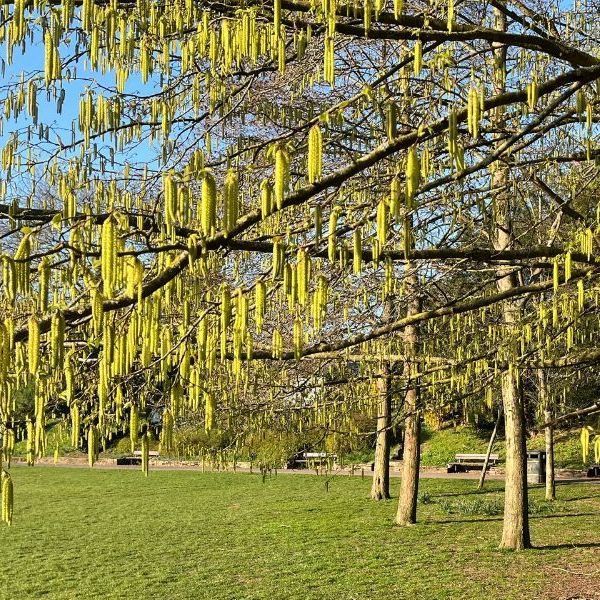
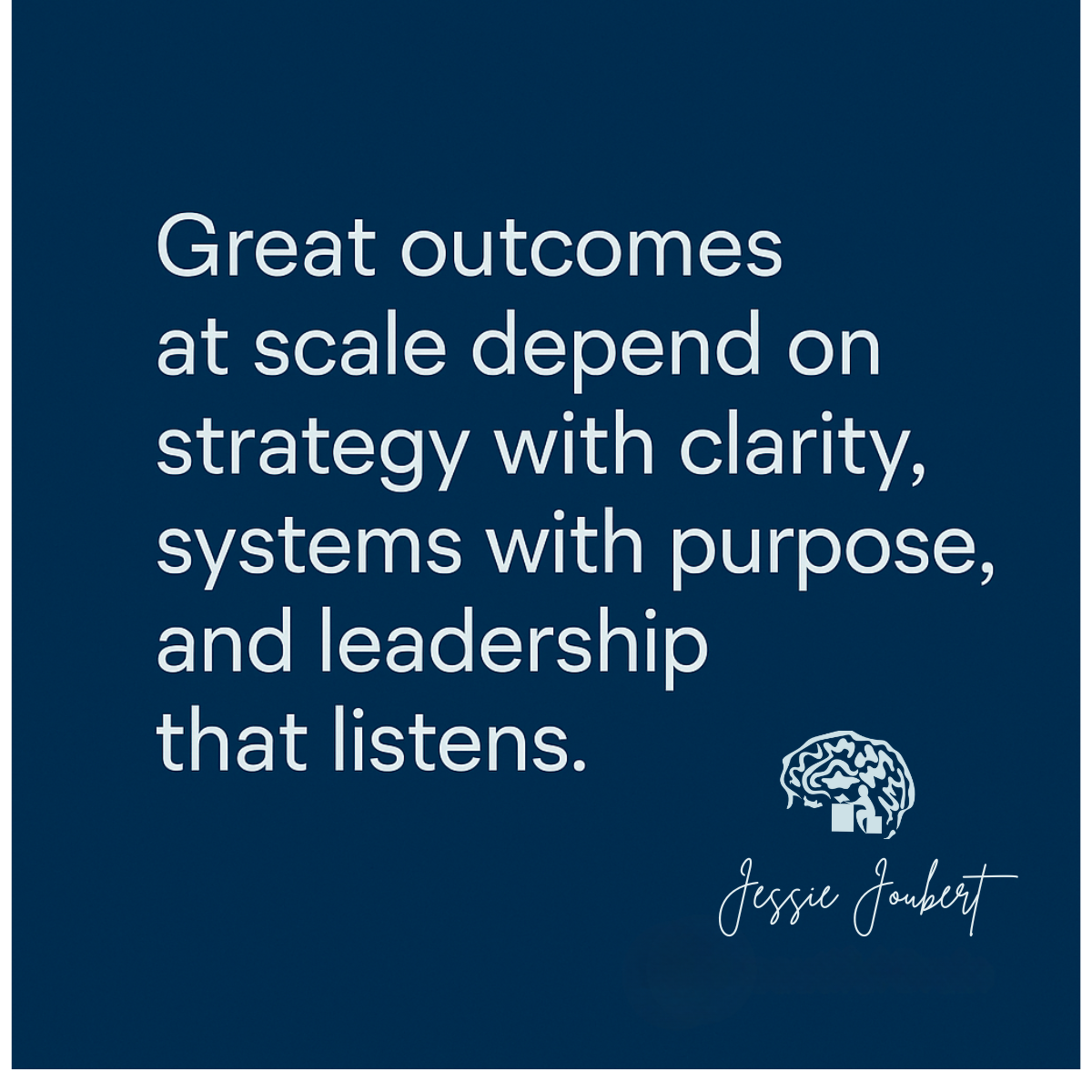
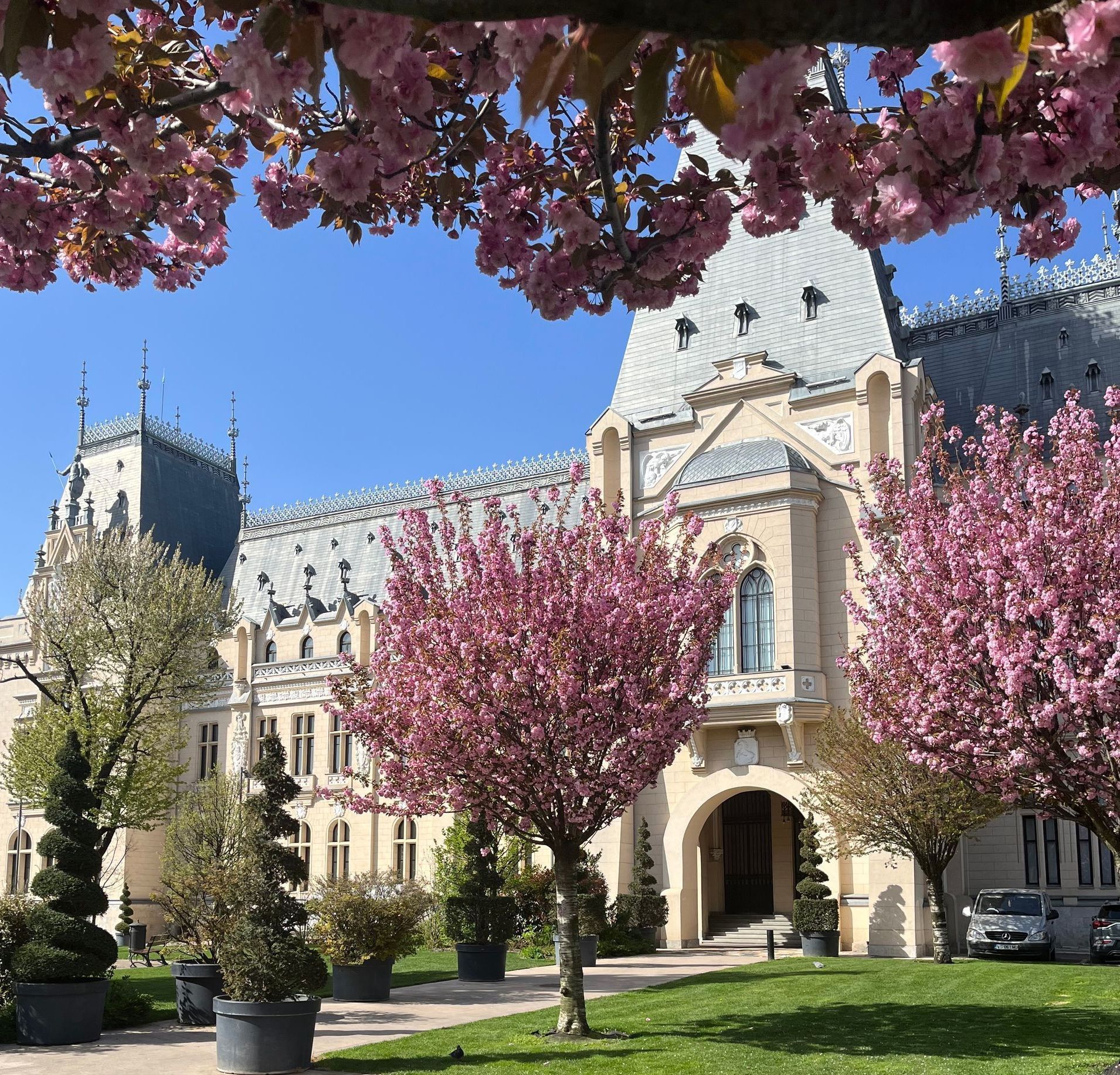
Breaking the Pattern: The Other Side of Cultural Capital
Cultural Capital Post. : What We Don’t Pass Down
A reflection on cultural capital, rupture, and the courage to grow differently
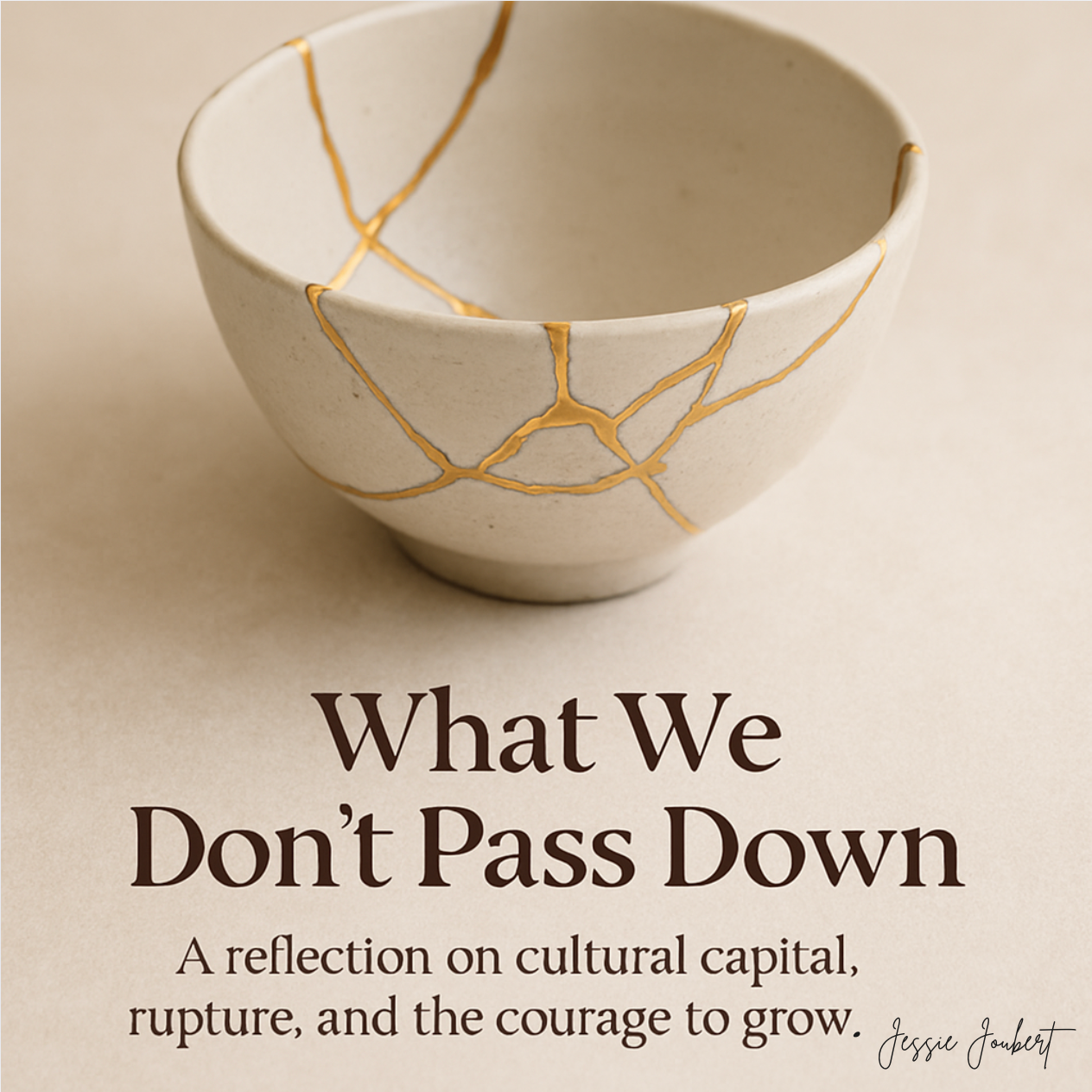
There are things we carry with pride — books read at bedtime, stories told by grandparents, a work ethic learned at a parent’s side. These are the visible threads of cultural capital. But there are other things too:
- Things we carry out of habit.
- Things we absorbed quietly.
- Things we didn’t realise we were passing on — until we saw ourselves doing it.
And slowly came to understand: it wasn’t serving us well. It was limiting. It was shaping decisions, expectations, and behaviours that quietly kept us — and others — small.
The things we inherit quietly
For some, it’s the absence of something:
“No one ever helped me with my homework — I had to figure it out alone.”
“We didn’t talk about books or ideas — school was just something you got through.”
For others, it’s the weight of something:
“If I didn’t excel, I wasn’t enough.”
“My worth was tied to winning — in sport, spelling bees, music exams, getting the job.”
Not out of malice. Often from love. But love filtered through pressure, silence, expectation, shame.
We inherit systems, too — not just personally, but professionally.
A school might still enforce a behaviour policy designed around compliance and reward, not understanding and reflection. Or uphold a display policy where perfect handwriting is valued more than process, effort, or voice. At the time, these things made sense. They offered structure. They gave the illusion of fairness or excellence.
But over time, they calcify. They narrow. They restrict.
And one day — we see it.
The moment you see it — and stop
Sometimes the rupture is loud. Other times it’s quiet — a pause mid-sentence, a sigh that catches your own words in the air.
- A parent sits down to help with homework, heart pounding. Not because they know what they’re doing — but because they didn’t want their child to feel what they once felt: alone.
- Or the opposite — a parent catches themselves demanding top marks, holding a red pen to a five-year-old’s handwriting — and realises they’ve become the very pressure they promised to break.
- A teacher stops mid-lesson and realises the classroom routine they've always used only works for the most compliant learners.
- A school leader finally questions: Why are we still publishing top-ten spelling test results in the newsletter?
And beneath questions, a deeper one: Who are we doing this for?
When the lightning strikes
Growth often begins with rupture.
Not gentle evolution, but something sharper — like a lightning strike across a field. It burns. It surprises. And it releases something into the soil that wasn’t there before. Sometimes growth requires us to cauterise — to say:
- “That’s where it ends.”
- “That story, that expectation, that silence — it stops with me.”
- “That policy. That strategy. That system — it served us once, but no longer.”
That’s not a rejection of the past. It’s an act of love toward the future.
Grieving what no longer serves
And still — there is grief. Letting go isn’t clean. Even when it’s necessary, it’s not without loss.
As individuals, we might grieve the image of the parent we thought we were supposed to be — the neat, all-knowing, high-expectation model passed down to us. We grieve the identity of being the one who always did well, always had control, always knew best.
For institutions, the grief is collective. There’s grief in saying goodbye to a “signature” policy. To a house system, a reward board, a prized tradition.
There’s grief in realising something you built — something you truly believed in — now needs to be dismantled or reimagined.
This is attachment. This is legacy. This is the quiet heartbreak of doing better. But grace lives here, too:
- Grace isn’t pretending the old way never existed.
- Grace is acknowledging it — and still choosing to grow beyond it.
From personal to professional
This isn’t just about parenting. It’s about practice.
It’s about schools that once relied on systems of control now choosing relationships instead.
About leadership that once praised compliance now championing creativity. About teachers who once had to survive… now choosing to teach differently, lead differently, 'be' differently.
This is the cultural capital of change.
Not what they’ve carried forward, but what they’ve courageously laid down.
So what don’t you want to pass down?
- What practice, habit, or belief has outlived its purpose — and needs to go?
- What are you ready to stop carrying, simply because “it’s how it’s always been”?
- What new space might be made possible — if we let something old fall away?
You don’t need to fix everything. You just need to name what no longer fits — and be brave enough to choose something else. Because not everything inherited needs to be repeated. And sometimes the most powerful thing we pass on…. Is a gentler way forward.
Like Kintsugi — the Japanese art of repairing broken pottery with gold — there is grace in keeping the cracks visible. Not as flaws, but as part of the story.
- What you broke… you honoured.
- What you mended… you made stronger.
And what you chose not to pass down — created space for something more beautiful to grow.



